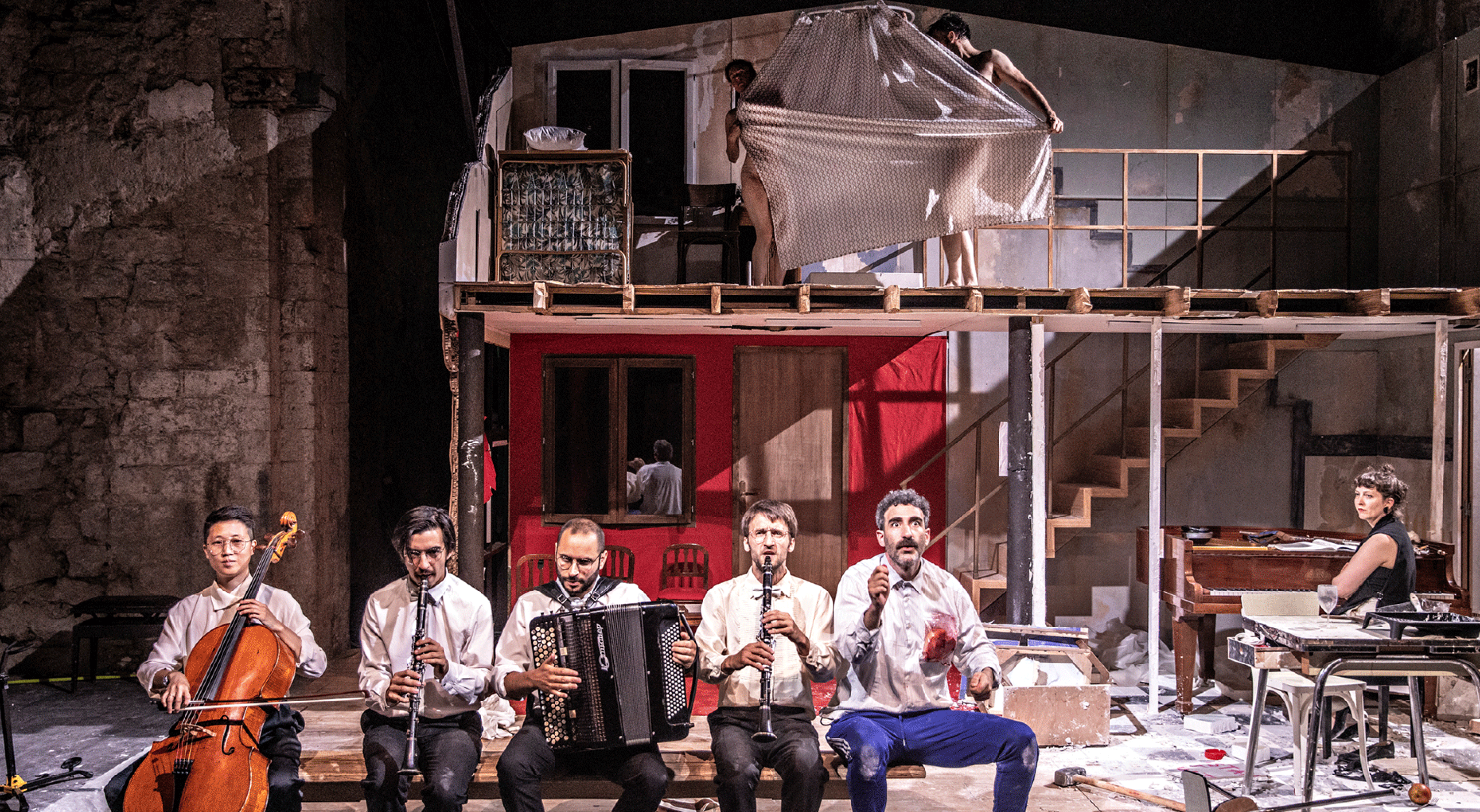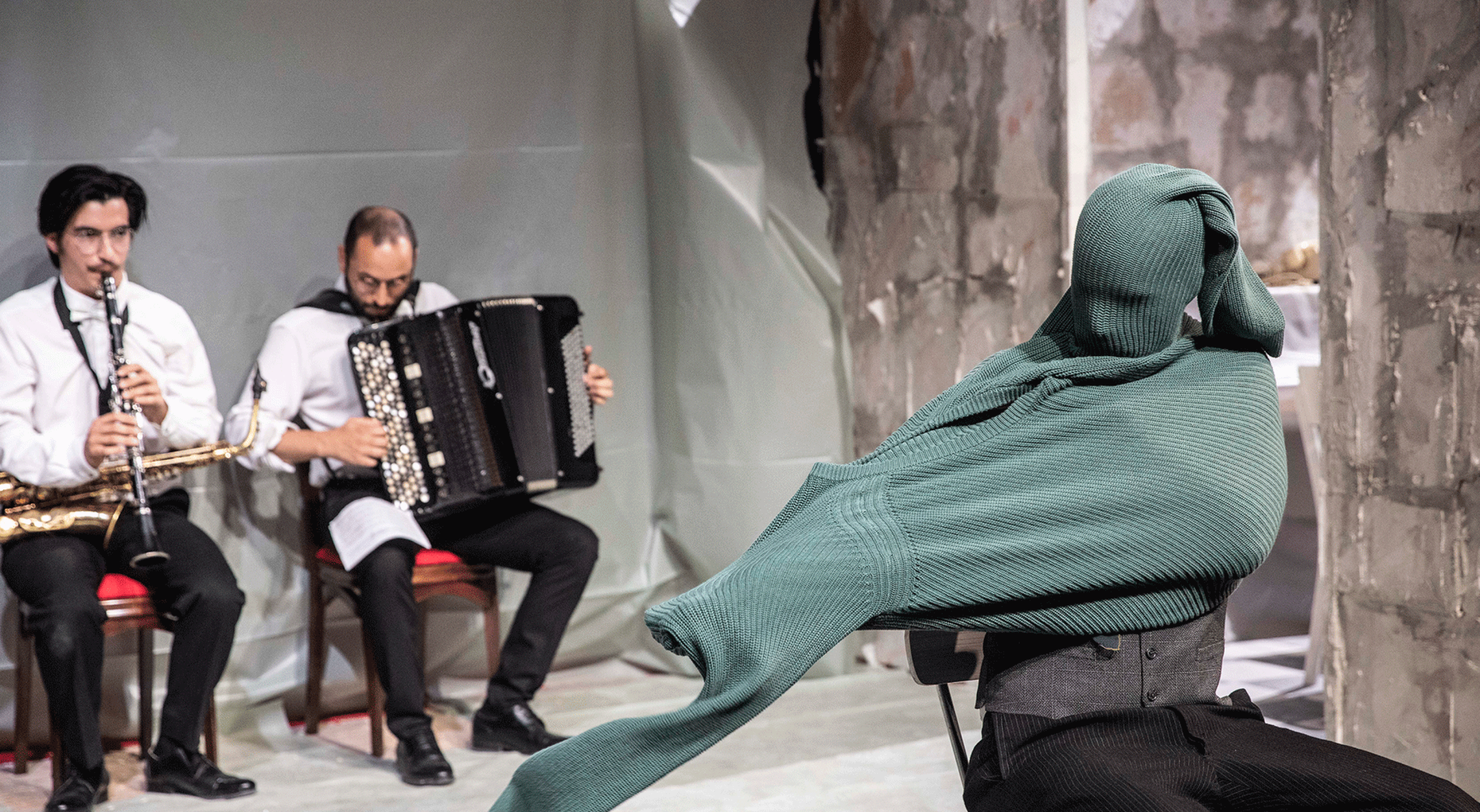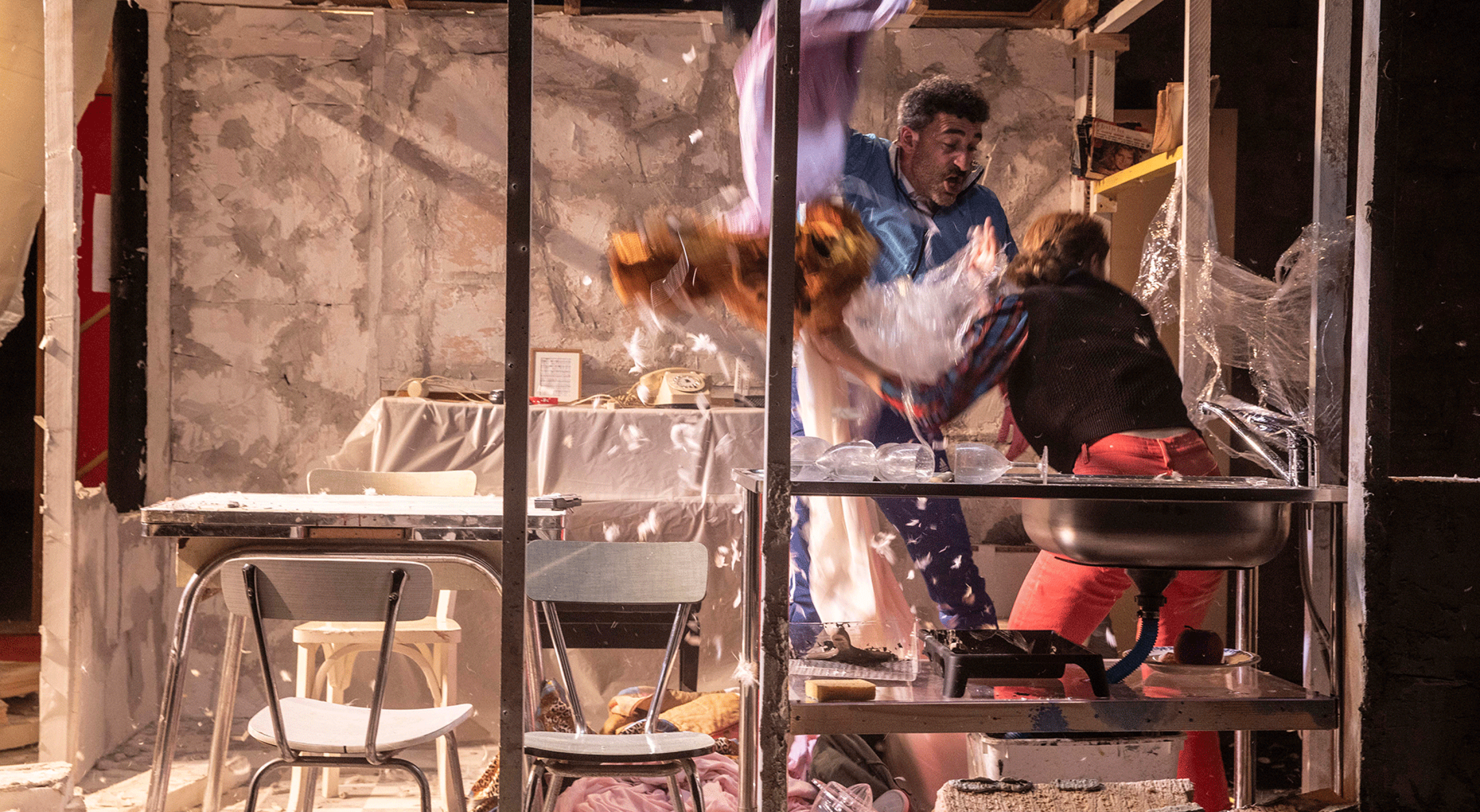Samuel Achache
Sans tambour
decemberdec 1 – 11
februaryfeb 3 – 4
Staged by Samuel Achache
Collective arrangements based on Schumann’s Lieder from Liederkreiss Op. 39, Frauenliebe und Leben Op. 42, Myrthen Op. 25, Dichterliebe Op. 48, Liederkreiss Op. 24
Featuring Gulrim Choï, Lionel Dray, Antonin-Tri Hoang, Florent Hubert, Sébastien Innocenti, Sarah Le Picard, Léo-Antonin Lutinier, Agathe Peyrat, Eve Risser
Musical director, Florent Hubert
Stage design, Lisa Navarro
Costumes, Pauline Kieffer
Lights, César Godefroy
Stage work contributors, Sarah Le Picard, Lucile Rose
Assistant costumes and accessories, Kikita Simoni
General and stage manager, Serge Ugolini
Stage manager, Sarah Jacquemot-Fiumani
Lighting director, Maël Fabre
Produced by Centre International de Créations Théâtrales/Théâtre des Bouffes du Nord (Paris) & La Sourde
Coproduction Théâtre de Lorient – Centre Dramatique National; Théâtre National de Nice; Les Théâtres de la ville du Luxembourg; Théâtre de Caen; Le Quartz, Scène nationale de Brest; Festival d’Avignon; Points communsnouvelle scène nationale Cergy-Pontoise/Val d’Oise; Festival Dei Due Mondi – Spoleto; Opéra national de Lorraine; Festival d’Automne à Paris; Le Parvis – Scène nationale Tarbes Pyrénées; Théâtre + Cinéma Scène Nationale Grand Narbonne; Le Grand R –Scène Nationale de La Roche sur Yon
Creative residency hosted by la vie brève – Théâtre de l’Aquarium et du Centre d’Art et de Culture de Meudon
Co-directed by Théâtre Gérard Philipe – CDN de Saint-Denis; Festival d’Automne à Paris for productions at Théâtre Gérard Philipe – CDN de Saint-Denis
In Sans tambour, Samuel Achache investigates the motifs of collapse and renaissance. Drawing upon Schumann’s Lieder, this fragmentary piece continues to explore, in an unhindered way, the links between theatre and music.
Sans tambour is the story of the quiet collapse of a house, together with its inhabitants. Using this situation as his starting point, Samuel Achache composes a piece using tableaux which recount different eras, from the present day to the Stone Age, and take us through the events in the lives of those present. The stage is turned into a building site in a continual state of deconstruction, made up of the strata of the past and the traces of the present. Song emerges from the ruins, and the musical instruments from the rubble. Each actor-musician attempts to reconstruct what remains of him or herself, to make do with the chaos that is left over, their misshapen recollections and subjective memory. In the company of Florent Hubert’s musical direction and a handful of his trusted collaborators, Samuel Achache returns to an infinitely musical form. He uses the Lied as the intimate, miniature basis for the exploration of the collective whole, relying upon a chorus of different voices to carry it along.


